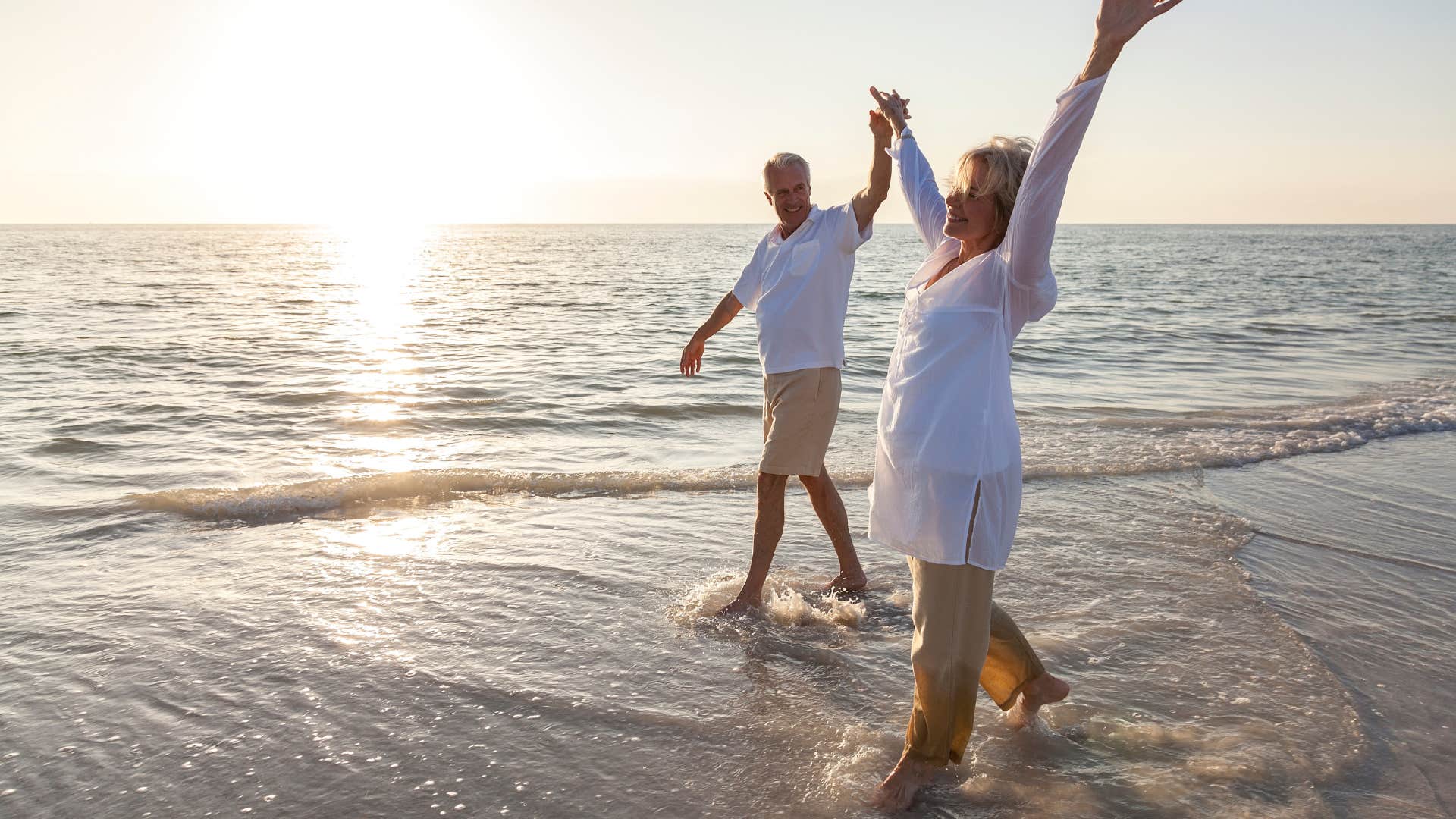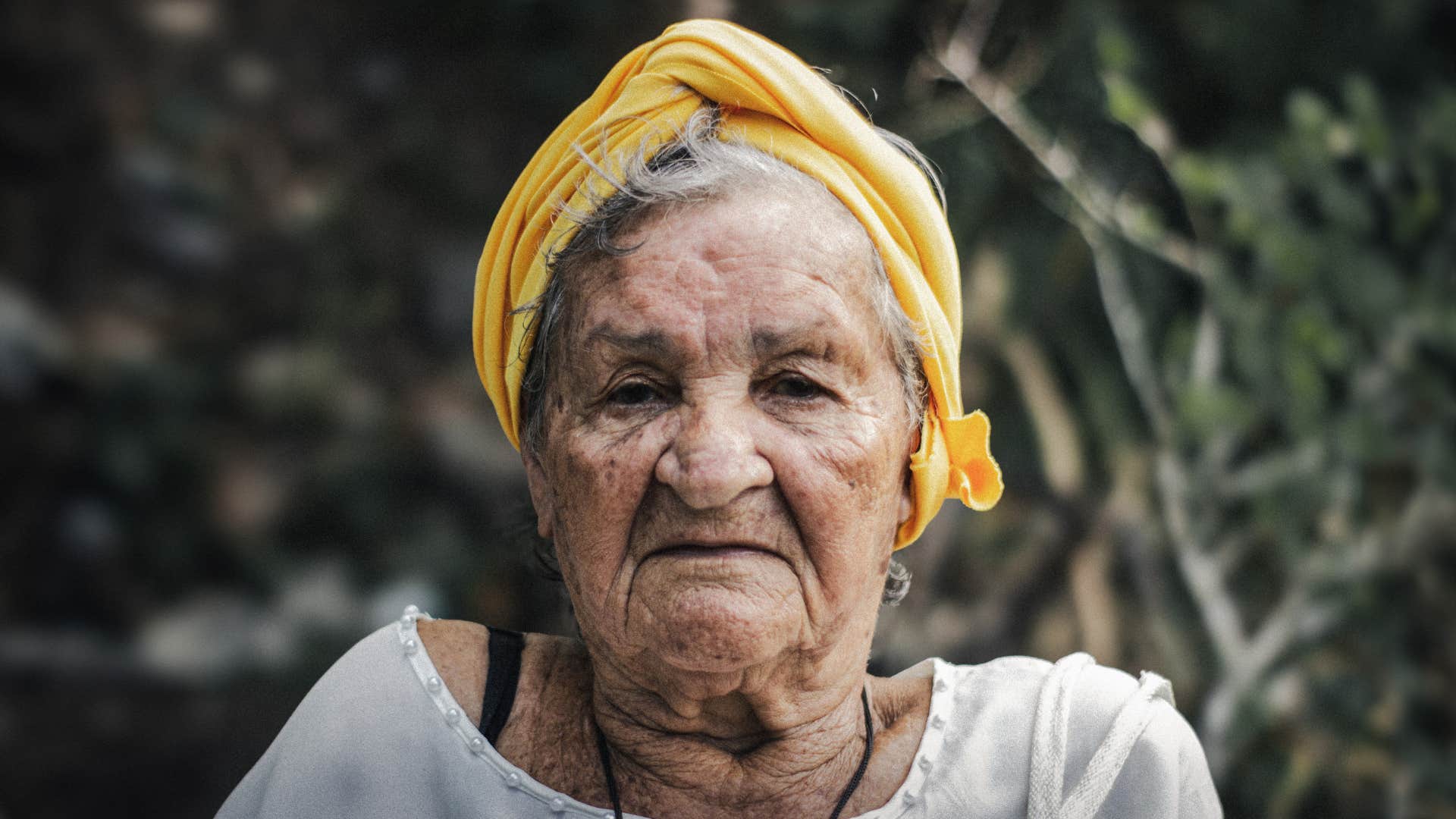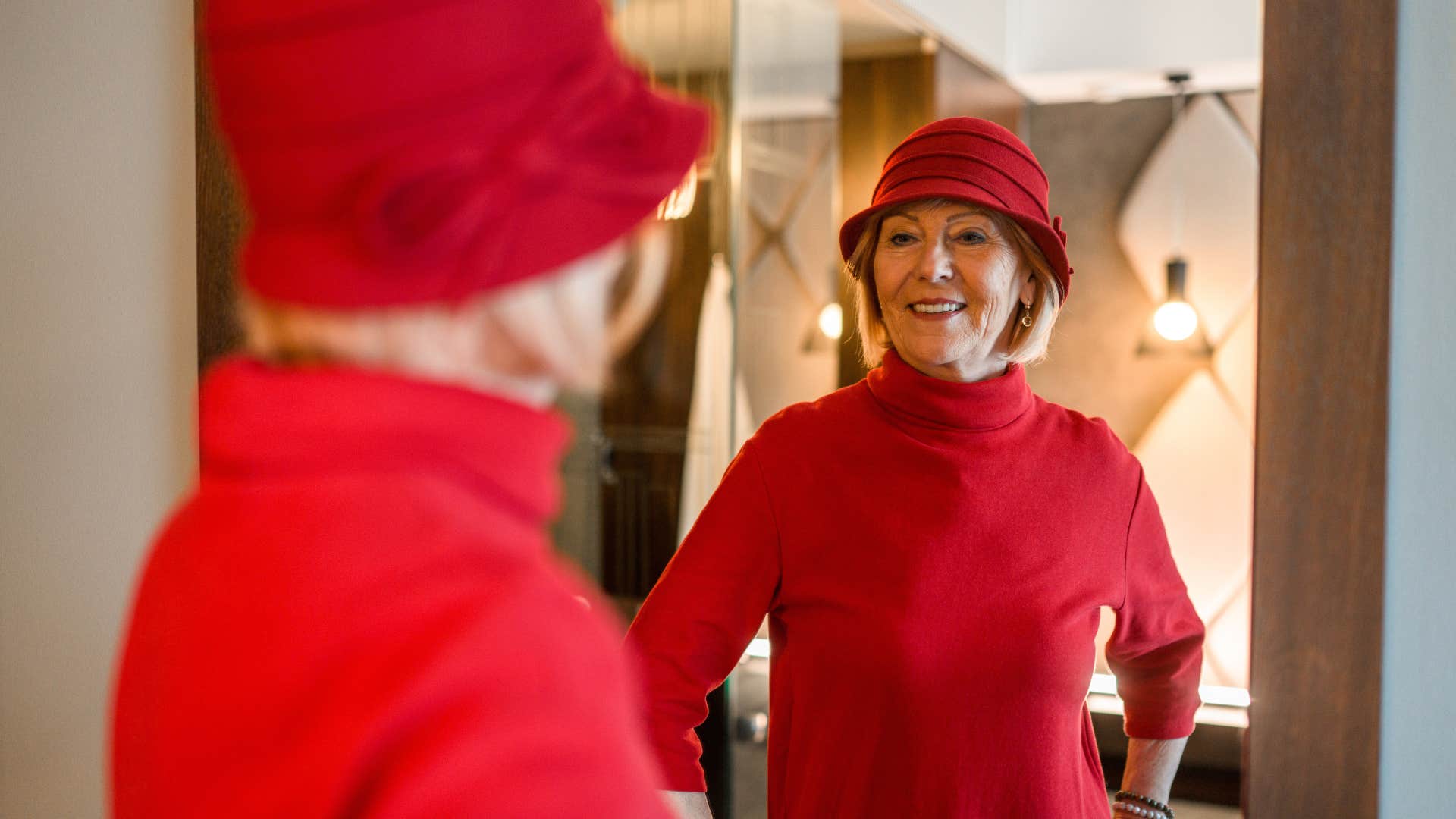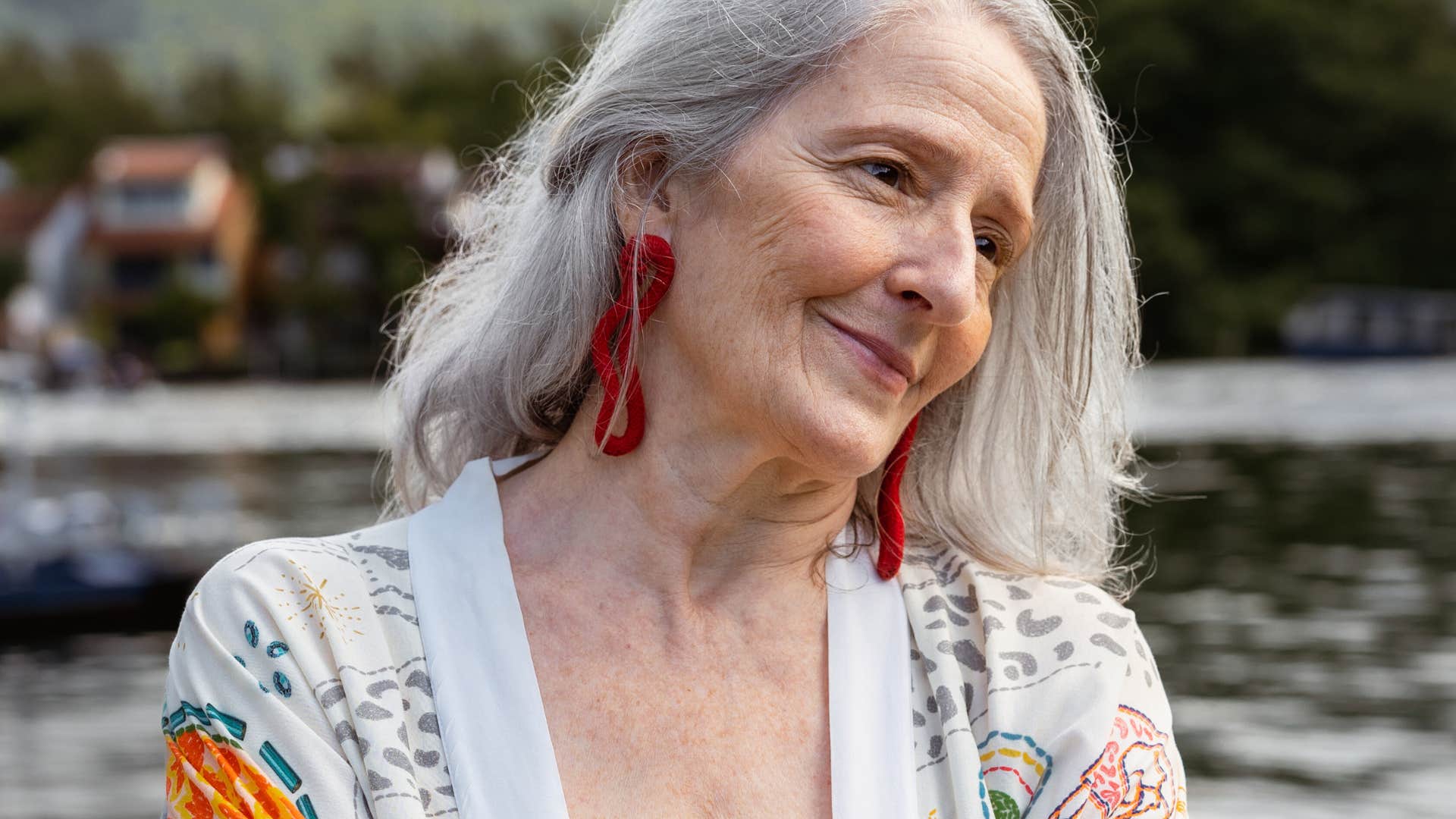11 Things People Are Thankful Not To Have To Deal With Anymore Now That They’re Older
There comes a time when you just stop doing anything that no longer serves you.
 michaelheim / Shutterstock
michaelheim / Shutterstock Growing older means there will definitely be some things that you miss. That youthful energy, spontaneity, and fast metabolism become things of the past, but there are also some things that you happily put in the rearview mirror. Maturity prompts you to let go of things you now realize don't matter and hold onto those that do.
Aging can be challenging. Your body might start to betray you, and your mind might have its own set of age-related challenges. But getting older also comes with a lot of unanticipated freedom. You learn that peace, authenticity, simplicity, and purpose are the best indicators of a good life. You become thankful to not have to do some things that just don't make sense anymore.
Here are 11 things people are thankful not to have to deal with anymore now that they are older
1. Worrying about what everyone else thinks
 AleksandarNakic from Getty Images Signature via Canva
AleksandarNakic from Getty Images Signature via Canva
When we are young, we live and breathe for the approval of everyone else. The opinions of your peers can make or break your self-esteem. You have no idea that the most important validation comes from within, so you spend precious years of your life like a rabbit chasing the carrot of external validation, never catching it.
With age comes clarity and realization that trying to impress others holds no value. You become disinterested in their judgments, and that is very refreshing. Comfort, authenticity, and peace of mind start to matter more than the approval of people who have no real interest in your personal well-being.
2. Keeping up with every new trend
 Polina Zimmerman from Pexels via Canva
Polina Zimmerman from Pexels via Canva
Fashion, slang, and social media apps have the young people in a chokehold. They have to stay abreast of the latest trends and fads and keep up to avoid being left behind. But as we mature, we realize that following the crowd is a thankless journey. We recognize how exhausting it can be and choose to no longer participate.
People who know better are more apt to focus on comfort and functionality over what's in and what's out. They don't need to prove that they can afford the latest phone upgrade or the newest car. They find value in the things that last and are of good quality, and don't care about wasting money for no reason.
3. Constant drama in relationships
 kali9 from Getty Images Signature via Canva
kali9 from Getty Images Signature via Canva
Messy group chats, silent treatments, breakups and makeups, and toxic tests to confirm your loyalty were the norm in our immature days. We thrived on chaos and inserted ourselves into dramatic situations that were none of our business for the thrill of it. As time went on, we became worn down by drama and sought to remove it from our lives.
People who a lucky enough to grow older start to focus on the quality of relationships over quantity. They know how to walk away from the table when respect is no longer being served and can easily discern who is worthy of their attention and who is strictly there to disturb their peace. As you get older, your circle shrinks and becomes more refined. You want people around you who have also outgrown the drama.
4. Dating the wrong people for the wrong reasons
 Darren Baker via Canva
Darren Baker via Canva
When we were young, we used people for our healing. Instead of spending time in solitude, we latched onto people who were never Mr. Right, but Mr. Right Now. Perhaps it was loneliness, pressure to settle down and have a family, not knowing what we really wanted, or getting over one person by getting under another. We settled for less than we desired or deserved and gave people an opportunity who our older selves would be ashamed to claim.
When you grow, the confusion that was so present during your youth starts to dissipate. You have learned who you are and what you want. Dealbreakers and boundaries settle firmly into place, and you'd rather be alone than still alone, but with someone. You become perfectly content with being in your own company and realize that you can be blissfully single and still thrive.
5. Trying to please everyone
 Ramon Rocha from Pexels via Canva
Ramon Rocha from Pexels via Canva
I remember bending over backwards to make every person in my life happy. My parents, my partner, my children, my friends, my colleagues, random people — I was passing out energy to everybody and their mama. I found myself depleted and stretched too thin to give myself the same care and concern that I gave everyone else. Then, I woke up. I was in my 40s when I realized overgiving is a thankless job, so I stopped.
Getting older means understanding that relationships must be reciprocal and that the only opinion about you that truly matters is yours. You stop doing backflips to make people feel like you matter and incorporate healthy boundaries. Saying "No" becomes so much easier and guilt-free, and life settles into a peaceful rhythm. You have reprogrammed yourself to put your needs first, and no one is above the program.
6. Fronting as if you have it when you don't
 studioroman via Canva
studioroman via Canva
When you front, you pretend to be something you are not or to have something that you don't possess. It might be money, homes, cars, clothes, relationships, businesses, or anything of material value. Some young people tie their worth to what they have. They want to be as rich, or as fly, or as popular as the next person, and if they don't believe they are, they fake it to make it. Older adults know that value and worth are in you, not on you.
You survived ramen noodles and hot dogs, and now that you are actually thriving, your focus is on maintaining the wealth that you have, not frivolous spending and indulgence. Even if you are not wealthy, as you get older, you learn the importance of budgeting and planning. You develop the discipline to just say no to big-ticket items that look good but depreciate over time.
7. Hustle culture
 PeopleImages from Getty Images via Canva
PeopleImages from Getty Images via Canva
Hungry youngsters climb the corporate ladder with vim and vigor. They compete with their peers for more accolades and money because they want to be successful and believe that's how to get there. But eventually, we all learn that success is subjective and complex. Yes, following your dreams matters, but who you are when no one is clapping for you or paying you to be there matters much more.
Grinding for eighty hours loses its luster when you realize that you are just a cog in the wheel. If you disappear tomorrow, you will be replaced expeditiously. So, you start to focus on what counts. Work-life balance, stability, and purpose take precedence over blind ambition and being burned out, and pretending you are okay.
8. Self-consciousness about your appearance
 AzmanL from Getty Images Signature via Canva
AzmanL from Getty Images Signature via Canva
The pressure that we had to be thin, flawless, and pretty fades as we age. When we were young, wild, and free, we rose to the occasion to meet beauty standards, or at least give it a good try. We had to be the most attractive person in the room, or we started to feel inadequate and insecure. When you allow yourself to mature, you find out that your real worth has no connection to your appearance.
It becomes apparent that even the most beautiful people in the world have something they are self-conscious about, so why waste another precious moment on worrying about your looks? You learn to love the skin that you are in, and the total and complete acceptance and self-love give you an inner glow that shines brighter than any bronzer ever could. Confidence looks good on you.
9. Living for the weekend
 Robert Kneschke via Canva
Robert Kneschke via Canva
I can clearly recall making my way through the week with excitement and anticipation of the upcoming weekend. For some odd reason, my young mind told me that weekdays were for torture and hard work that earned the right to play hard when Friday evening rolled around. But as the numbers in my age increase, my relationship with time has changed. I started to do things on, dare I say it, weekdays.
There are plenty of things you can enjoy on each day of the week. A good show, a quiet moment, happy hour, a gym visit, or a talk with a close friend can happen whenever you want it to. Instead of letting over 3/4 of life pass you by, you see the possibilities of every minute you have on this planet. You become intentional and present seven days a week, making sure you enjoy all of the life you have left.
10. Uncertainty about your identity
 Joana Baumg from Studio Brazil via Canva
Joana Baumg from Studio Brazil via Canva
Learning who you are is a lifelong journey. Your young life is an experiment where you get to try out different things and see what sticks. You might try to fit in with others or hide who you are due to societal, familial, or cultural expectations. Before you know better, you tend to conform because that's what you thought you had to do. Age breeds knowledge of self, for most of us, at least.
The identity crises that made us so uncertain about ourselves disappear with time. We have become more self-aware, and the pressure to be who others want us to be eases. We don't have it all figured out, but that's okay. We are comfortable in a state of constantly uncovering more about our needs and desires. Truly grown people learn to appreciate the journey instead of just focusing on the destination.
11. Comparing yourself to everybody else
 Andrea Piacquadio from Pexels via Canva
Andrea Piacquadio from Pexels via Canva
Being young was like a competitive sport. You wanted to stand out in the crowd and needed everyone to confirm that you were the best and brightest. You measured your life against that of others to decide if you were a winner or a loser. But if you've been around long enough, you will start to see that comparison only serves to steal your joy. There will always be someone bigger, better, or more beautiful than you are.
You realize that putting yourself in competition with others is like comparing apples to oranges. You are unique and special, and so are they. You choose to be yourself because you know exactly how to do that. Older people become grateful for the person they've become and can be happy for others without being envious. When they look for competition, they know that the only place they will find it is in the mirror.
NyRee Ausler is a writer from Seattle, Washington, and the author of seven books. She focuses on lifestyle and human interest stories that deliver informative and actionable guidance on interpersonal relationships, enlightenment, and self-discovery.

